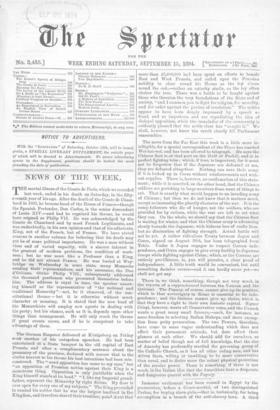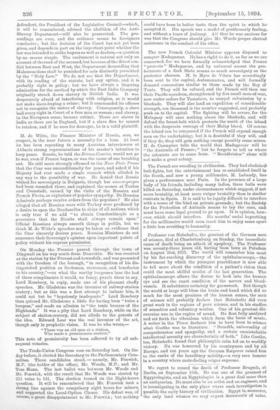Immense excitement has been caused in Egypt by the prosecution,
before a Court-martial, of two distinguished Pashas, for buying slave-girls,—tbat is, technically, for being accomplices in a breach of the anti-slavery laws, A third defendant, the President of the Legislative Council—which, it will be remembered, advised the abolition of the Anti- Slavery Department—will also be prosecuted. The pro- ceedings are over, and the evidence seems to foreigners conclusive ; but the decision of the Court has not yet been given, and depends in part on the important point whether the law was intended to strike buyers as well as dealers,--a question by no means simple. The excitement is natural not only on account of the rank of the accused, but because of the direct con- flict between East and West, the Department demanding that Mahommedans shall be punished for acts distinctly permitted by the "Holy Law." We do not see that the Department, with its reading of the statute, had any option, and it is probably right in policy; but we have always a lingering admiration for the method by which the East India Company originally struck down slavery in British India. It was desperately afraid of interfering with religion, so it would not make slave-buying a crime ; but it commanded its officers not to recognise the status of slavery. Consequently, a slave had every right in Court of a free man or woman ; and slavery, in the European sense, became extinct. There are slaves in India as there are in England, but if a slave flies he cannot be retaken, and if he sues for damages, he is a valid plaintiff.



































